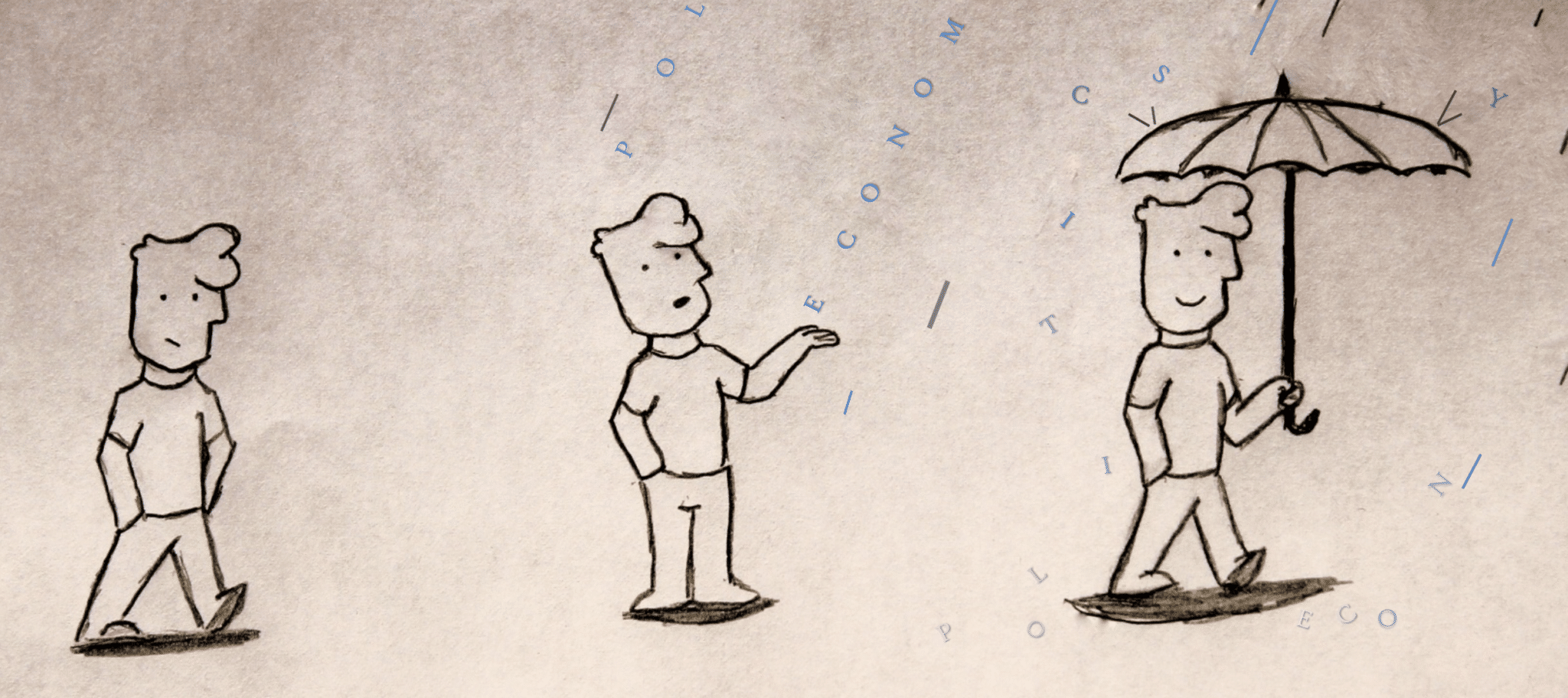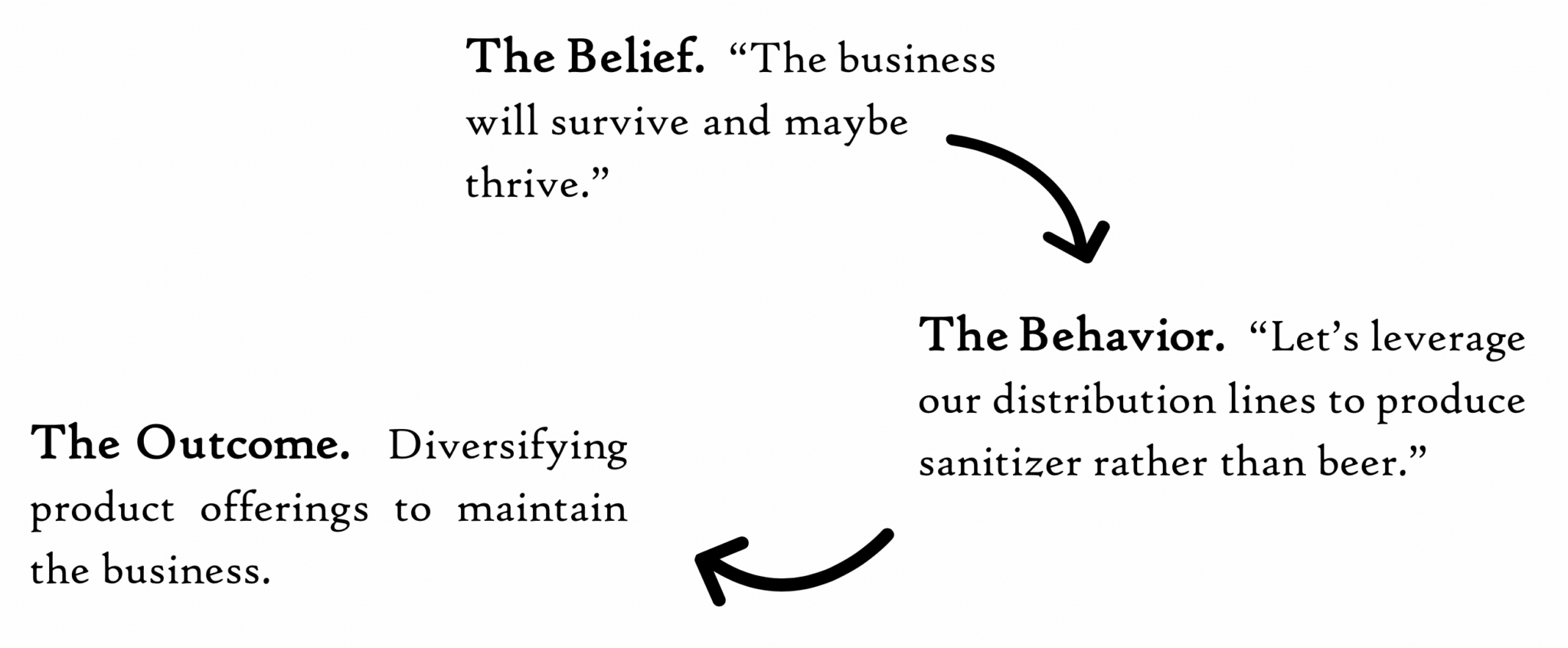Take Control of the Uncontrollable by Challenging Your Beliefs

There is so much we can’t control during these unprecedented times: the economy, the virus, and politics. However, we do have control over our beliefs. Psychologists have studied how beliefs have impacted behaviors for decades. What may surprise you is that humans have the ability to manage their beliefs and attitudes about a situation, which ultimately impacts their behavior and, finally, the outcomes (Ajzen, 1991).
Leaders today are likely feeling out of control, and many have beliefs that their businesses won’t make it through COVID-19. PwC’s ongoing COVID-19 Pulse Survey found that over half of business leaders reported the outbreak may “significantly” impact business operations and they expect there will be a decrease in revenue. However, by drawing on tried-and-true psychological research, leaders can better position their organizations for success.
Now, for leaders, let’s look at the impact of altering beliefs, behaviors, and outcomes. A leader who believes that their business will not survive the pandemic is likely to behave differently than a leader who believes that their business will absolutely survive.

According to a 2020 Gallup meta-analysis examining major crises, employees are relying on leaders to provide hope and a clear path forward during COVID-19. If leaders are confident in this path, employees have proven to demonstrate a “rally effect,” where they are remarkably resilient (Harter, 2020). Therefore, it is crucial for leaders to alter their beliefs, behaviors, and outcomes to fit a more positive outlook.
As a leader, you have the ability to guide your people and organization. Think about who your organization was just weeks ago, think through the challenges you’re faced with today, and, finally, how you can come out of this successfully. Think through multiple scenarios of success. Once done, write down the three things YOU can do as a leader to make this become a reality, and three things your organization can do.
Coauthored by Savannah Price
References:
Ajzen, I. (1991). The theory of planned behavior. Organizational Behavior and Human Decision Processes, 50, 179-211.
Gallup 2020 Meta-analysis by Jim Harter: https://www.gallup.com/workplace/297497/covid-employees-need-leaders-right.aspx
PwC’s COVID-19 Pulse Survey: https://www.pwc.com/us/en/library/covid-19/pwc-covid-19-cfo-pulse-survey.html
